- Make It Yourself Lavender Heart-Shaped Bath Bombs!
- 20 Things You Never Knew About “Down There”
- 12 Best Foods For Those Suffering From Arthritis Pain
- 12 Personal Hygiene Mistakes Almost Everyone Makes (Mom Never Told You About #4!)
- 15 Medicinal Plants And Herbs From The Cherokee People
- 12 Mind-Blowing Benefits Of Drinking Coconut Water During Pregnancy
- 12 Outstanding Winter Foods That Won’t Fatten You Up Like A Christmas Turkey
20 Top Foods To Protect You From Cancer (You Knew About #15, Right?)
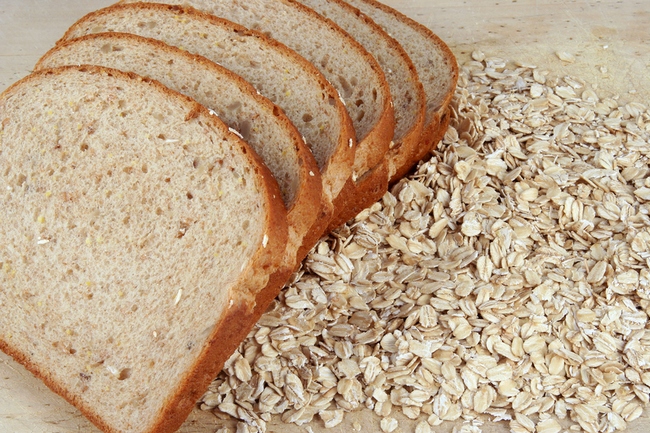
Photo credit: bigstock.com
You have probably heard this over and over again; what we eat can either cause cancer or prevent cancer. Top cancer experts have determined which foods we need to avoid but, thankfully, they have also identified for us which foods will protect us from cancer.
The relationship between diet and cancer has been proven over and over in many studies. Are you interested in knowing which top 20 foods scientists have identified as being the best ones to prevent cancer?
In this article, you will discover which foods and key nutrients are proven to lower your risk of cancer. Add more of these foods to your grocery list each week and throw your worries about cancer out the window.
1. Whole Grains
You might have read recently that the federal government revised their nutrition guidelines recently, which recommended that Americans cut their grain consumption to half of what used to be considered healthy. This includes grains like rice. Whole grains deliver plenty of cancer fighting, immune improving fiber. Diets high in fiber have been shown to greatly cut the risk of colorectal cancer. Whole grains also offer other types of cancer fighting substances such as lignans, which work in the body like antioxidants as well as saponins, which stop cancer cells from multiplying.
Look for items that say “100 percent whole wheat;” not just “wheat” bread. For extra cancer fighting protection, choose a whole wheat or whole grain bread that is sprinkled with flax or sesame seeds. When choosing pasta or rice, try brown rice or whole wheat pasta, rather than the nutrient-stripped “white” versions. Don’t be fooled by sugary cereals that state they contain whole grains, however. Most cereals might have started as whole grain, but they are super processed until they are nothing more than white flour in the end.
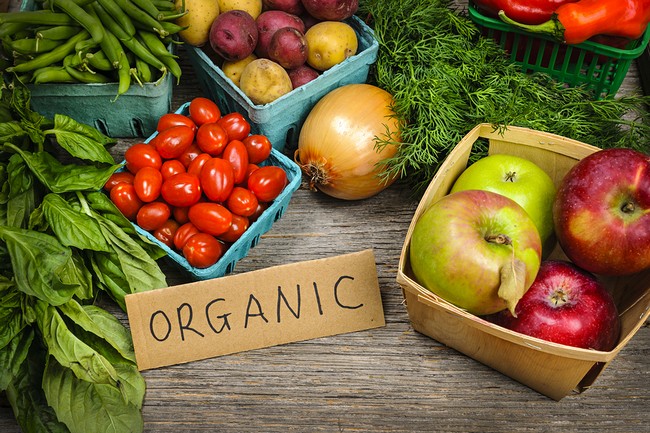
Photo credit: bigstock.com
2. Organic Fruits And Veggies
This one is no surprise. Organic fruits and veggies have been shown in numerous studies to prevent mouth cancer, cancer of the esophagus, larynx, and pharynx, as well as stomach cancer and lung cancer. This is due to the high level of antioxidants, such as beta-carotene and vitamin C. Antioxidants fight the free radicals in the body, which cause damage to our DNA. Eventually, this leads cells to turn cancerous.
Organic produce also contain phytochemicals which delay the overall cancer process. They repair damage done to our DNA, as well as helping to maintain a normal, healthy immune system. Eating plenty of organic fruits and veggies also fill you with that healthy dietary fiber, both the soluble and the insoluble kind. Since they are low in calories, they can go a long way towards helping you to maintain a healthy weight, which is an important factor in the prevention of cancer.
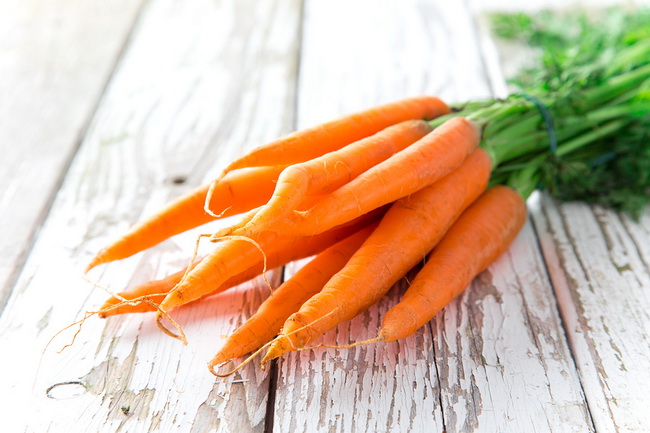
Photo credit: bigstock.com
3. Carrots
Although carrots could be included in the organic vegetable list above, some foods are so beneficial that we think they deserve special mention. One of the most loved veggies around, carrots is over-flowing with cancer and disease fighting nutrients. Carrots are high in beta-carotene, which is a powerful antioxidant that protects the cell membranes from the damage that toxins can cause. Beta-carotene also slows the growth of cancer cells while providing phytochemicals that guard against oral cancer, stomach cancer, and cancer of the esophagus.
Several studies have shown that carrots can fight the HPV virus, which causes cervical cancer. This root vegetable also contains a substance called falcarinol. Studies done in England found that rats that were fed carrots were less likely to develop cancerous tumors than those who did not eat carrots. This is one of the few vegetables that increase the amount of antioxidants they contain when they are cooked. Carrots are also sweeter when they have been cooked! Leave them whole while they are cooking, then slice them to reduce the loss of cancer fighting nutrients.

Photo credit: bigstock.com
4. Cabbage and Family
Foods that belong to the cabbage family, such as broccoli, Brussels sprouts, radishes, all colors and types of cabbage, cauliflower, and turnips all contain high levels of anti-cancer compounds which prevent numerous types of cancer. Cabbage and other vegetables in this same family also remove toxins and environmental pollutants from the body, which can also lead to cancer. Cabbage contains high levels of glucosinolates, which regulate inflammation in the body as well as removing toxins. Red cabbage, in particular, is well known for the high level of anthocyanins, which are highly anti-inflammatory.
One study, published in the 2014 Asian Pacific Journal of Cancer Prevention, found that a diet rich in cabbage and other vegetables in this family, lead to lower levels of oxidative stress. This leads to a lower risk of developing heart disease and certain types of cancer. Savoy cabbage has been shown to be a great source of sinigrin. Sinigrin is a powerful type of glucosinolates that has been proven to help prevent bladder cancer, colon cancer, and prostate cancer. Cabbage is best eaten raw or lightly steamed.

Photo credit: bigstockphoto.com
5. Strawberries
This is another food that could be lumped in with organic fruits and veggies, but like carrots, strawberries deserve special mention. Strawberries, like all other berries, seem to scoop up anti-cancer honors like a rock band collects groupies. Numerous research studies show that strawberries fight like a prize winning boxer when it comes to slowing the growth of cancer cells. In fact, strawberries and raspberry extracts were most effective when it came to fighting colon cancer. Strawberries are rich in a substance called ellagic acid.
Scientific studies show that ellagic acid has anti-cancer compounds that boost the activity of enzyme in the body which destroy cancer cells and slow the growth of tumors. All berries, including strawberries, contain flavonoids, which suppress an enzyme which damages the DNA and is particularly effective when fighting lung cancer. All types of berries, especially blueberries, deserve a spot on your grocery list. Blueberries are highest in antioxidants, which fight free radicals that cause premature aging and inflammation.
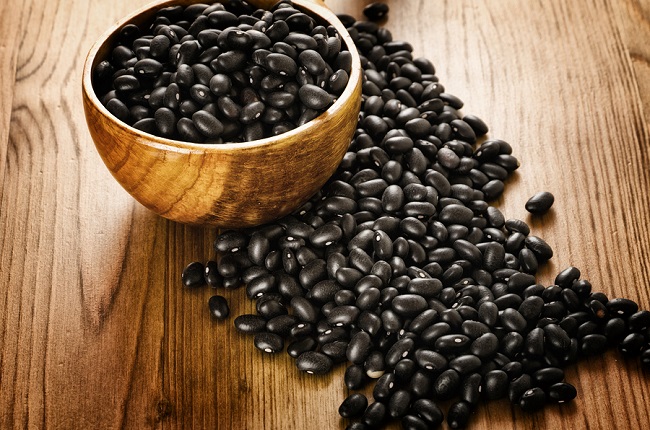
Photo credit: bigstock.com
6. Foods High In Fiber
High fiber foods are all around us; beans, chickpeas, vegetables, fruits, herbs, and lentils. Eating plenty of these types of foods prevents colorectal cancer. There are two types of fiber – insoluble and soluble. Insoluble fiber reduces the length of time that food remains in the digestive system, which can reduce your overall exposure to carcinogens and toxins in your food. Soluble fibers get fermented in your large intestine by the bacteria that live there. This turns fiber into short-chain fatty acids, which affect the large intestine in a positive way.
Eating a diet rich in both types of fiber is a great way to keep your weight in check as fiber will fill up your stomach without filling out your waistline. Being overweight or obese increases your risk of developing heart disease, diabetes, colon cancer, breast cancer, and endometrial cancer as well. Increasing fiber in your diet is one of the best ways to significantly reduce your risk of colorectal cancer, stomach cancer, and oral cancer.
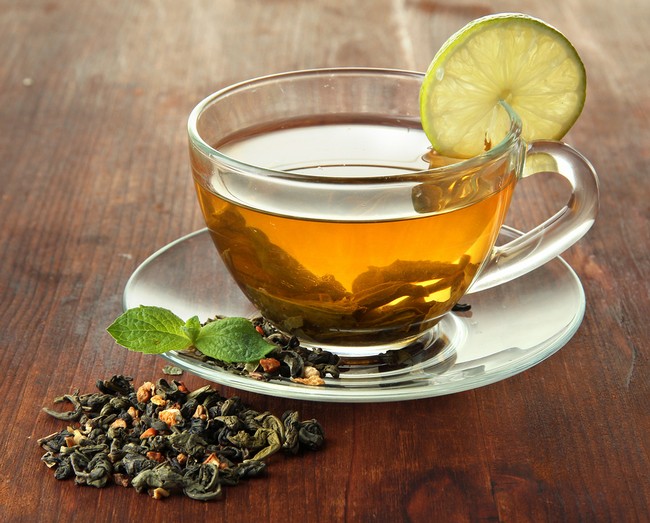
Photo credit: bigstock.com
7. Green Tea
OK, so green tea is not a food, but there is no denying that green tea contains potent antioxidants called catechins, which offer numerous health benefits as well as containing powerful anti-cancer agents. Green tea relaxes the lining of the blood vessels, which can lower blood pressure levels, leading to lower levels of heart disease. Green tea’s most powerful antioxidant, EGC, has been shown in studies to kill the mitochondria of cancer cells. This tea may one day be the new treatment for many types of cancer, canceling out chemotherapy.
Green tea has none of the side effects either! Molecular Nutrition and Food Research published a study showing that green tea broke down the defense system of cancer cells, and they died quickly of their own accord. Always brew green tea fresh at home, and don’t bother with the junk that is sold in bottles or cans. Drinking three or more cups of fresh green tea each day has been shown in numerous studies to lower the risk of all types of cancer, so feel free to indulge!
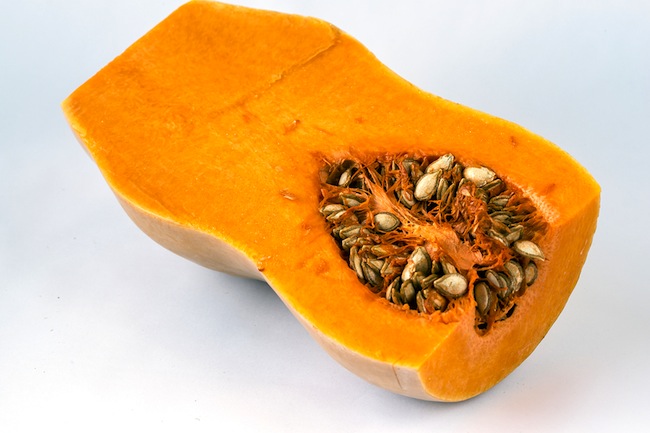
Photo credit: bigstock.com
8. Foods With Beta-Carotene
When it comes to looking for foods with beta- carotene, think orange! Squash, sweet potatoes, peaches, apricots, mangoes, loquats, cantaloupe, carrots, and more! Beta-carotene is a pigment that gives these foods their orange-ish color and it plays a vital role in the communication between cells that help to prevent cancer. Beta-carotene is an antioxidant, which helps to fight premature aging and oxidation of the cells caused by free radicals. This anti-cancer component is also called pre-vitamin A, because the body does convert some of the beta-carotene into vitamin A, which is vital for the normal functioning of your immune system, as well as for the proper function of enzymes in the body which work to delay the growth of cancer cells.
For the best cancer protection possible, add at least one of these orange colored fruits or vegetables to your diet every single day. Carrots, as we mentioned earlier, are especially effective against certain types of cancer, but all foods that contain beta-carotene are super cancer fighters.

Photo credit: bigstock.com
9. Flax Seeds
Flax seeds are terrific cancer fighters, especially when you grind fresh seeds yourself. Flax seeds must be ground to release their anti-cancer compounds but once ground, they can go rancid quickly. The best way to use flax seeds is to purchase them whole and keep them in a sealed container. Grind only what you plan to eat each day to avoid spoilage. Flax seeds contain omega-3 fatty acids, alpha-linolenic acid, lignans, and other types of healthy fats that are good for the heart as well as being super cancer fighters.
Lignans act like antioxidants in the body, which means that they seek out and destroy the free radicals that are often at the root cause of inflammation and oxidative stress, which damages our DNA and causes cells to mutate and turn cancerous. One or two tablespoons of ground flax seeds are all you need each day and they are easy to sprinkle over oatmeal or add to yogurt.
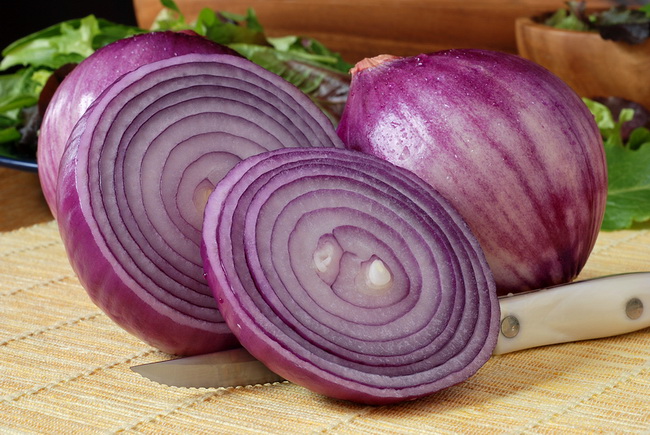
Photo credit: bigstock.com
10. Onions and Family
Onions and other vegetables in the onion family including chives, leeks, spring onions, and scallions are all terrific at preventing cancer. It’s the sulphur compounds they contain which not only make us cry because they are so strong, but that create protective enzymes which neutralize carcinogens in the body and protect us from certain types of cancer such as stomach cancer. Onions also contain a compound called quercetin, which offers powerful protection from lung cancer. Quercetin has also been shown in several studies to stop the initiation of cancerous tumors in the colon, breast, and ovaries.
Still other studies have shown that those who consume onions on a regular basis have lower levels of colorectal, prostate, ovarian, gastric, esophageal, and renal cell cancers than those who don’t enjoy onions. It is not clear, from the information available in current studies, exactly how many or how much onion one must eat to get this benefit, but some studies have suggested that even a moderate amount of onion in the diet can offer you protection from cancer.

Photo credit: bigstock.com
11. Folic Acid
Foods that contain high amounts of folic acid, such as whole grains, lettuce, broccoli, dill, cabbage, spinach, parsley, and other dark green leafy vegetables, including beet root, have been linked to a lower level of certain types of cancer such as pancreatic cancer. Although how folic acid works to prevent cancer is not completely understood, but scientists believe that folic acid, which is a part of the B complex vitamin group, causes a delay to occur on cancer causing genes.
SEE ALSO: Top 10 Everyday Foods That Can Kill Cancer
Folic acid is key when it comes to the production of healthy DNA and prevents cell changes that can turn a normal, healthy cell into a mutated, cancerous cell.
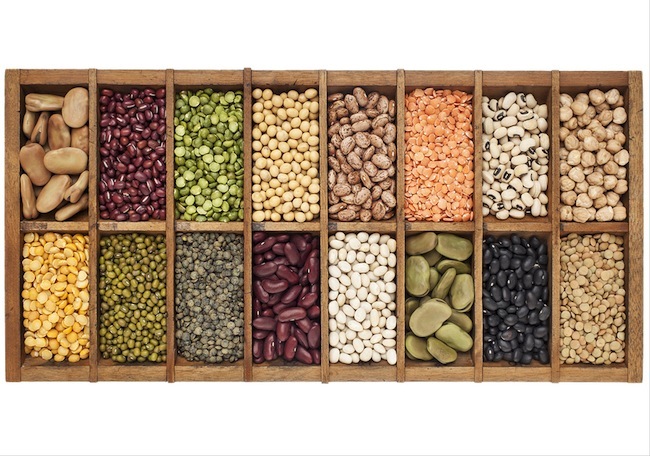
Photo credit: bigstock.com
12. Love Legumes
For super cancer protection, learn to love your legumes! Studies show that those who consume higher levels of legumes, such as lentils, peas, beans, and chickpeas, have lower levels of certain types of cancer including lung cancer, colorectal cancer, prostate cancer and stomach cancer. Legumes have water soluble fiber, which has a powerful anti-cancer affect (see point #6 for more information about fiber) as well as other plant components that can offer us protection from cancer. Some legumes, such as peas, lentils, and red beans were discovered to contain many more anti-cancer compounds than previously believed.
Legumes have been shown in numerous studies to significantly cut the risk of many types of cancer while helping you to maintain a healthy weight. Many varieties of beans are considered to be one of Mother Nature’s true super foods. Try substituting beans or other types of legumes for meat at least two meals out of each week for cancer protection that cannot be beat.

Photo credit: bigstock.com
13. Red Wine and Red Grapes
It’s all about the resveratrol that is found in red grapes and, therefore, red wine. This substance has been linked to the inhibition of cancer cell growth or to automatic cancer cell death. Resveratrol is actually an antioxidant, which you already have read a great deal about here. Antioxidants fight free radicals and the damage they cause. Harvard Medical School conducted studies which found that resveratrol activates a type of protein which stimulates good health and actually encourages longevity!
In another Harvard study, men who drank between four to seven servings of red wine each week had a more than 50 percent lower risk of developing prostate cancer. Drink one glass of red wine each day (don’t overindulge as excessive alcohol consumption is linked to a higher risk of cancer) or eat a handful of red grapes several times each week to get your fair share of this unique and powerful cancer fighting antioxidant.
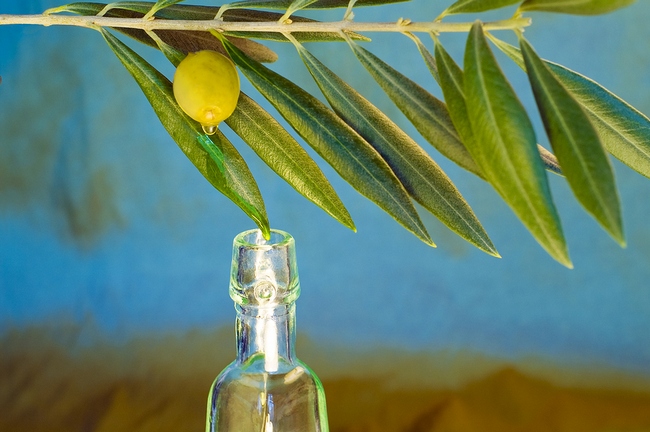
Photo credit: bigstock.com
14. Olive Oil
This is an easy way to incorporate cancer fighting compounds into your diet; simply add olive oil! A high consumption of olive oil is the traditional hallmark of the healthy Mediterranean diet. A growing number of studies show that consuming a diet high in healthy fats, such as the olive oil used in the Mediterranean diet, has been linked to a lower risk of cancer, especially in the area of colorectal cancer. Olive oil is a natural anti-inflammatory, which can help to keep pathogens and carcinogens out of your body.
Olive oil contains numerous antioxidants, which fight those free radicals that are the root cause of premature aging, chronic disease such as arthritis, as well as many type of cancer. This healthy type of oil contains a type of monounsaturated fatty acid that protects the body from cancer called oleic acid. Always buy extra virgin olive oil for the ultimate in cancer protection.
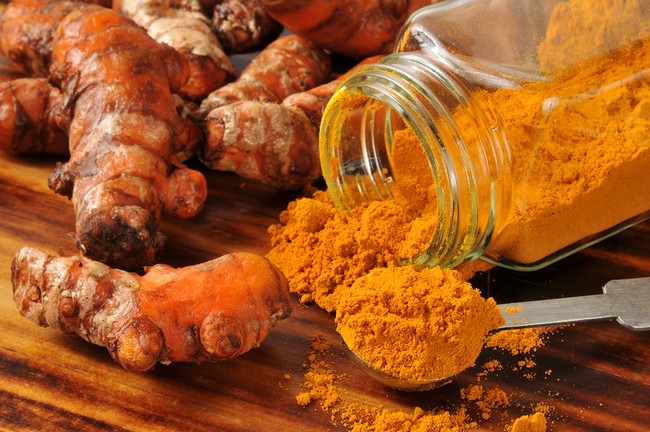
Photo credit: bigstock.com
15. Turmeric
This incredible spice has been shown to have numerous health benefits in studies that have been done over the past decade. In addition to being an incredible anti-inflammatory, turmeric has been shown to inhibit the growth of amyloid plaque, which is one of the root causes of Alzheimer’s disease. Turmeric has also been shown to inhibit the cancer process as well as the development of tumors such as stomach cancer, skin cancer, colon cancer, breast and prostate cancer, as well as oral cancer and cancer of the duodenum.
Feel free to add more turmeric to your cooking dishes. You can also start consuming turmeric by mixing a tablespoon of turmeric powder in a glass of milk and drinking this once each day. If you are not a fan of the flavor of turmeric, you can always consume a turmeric supplement, but you should speak with your doctor for the proper dosage for your unique situation.
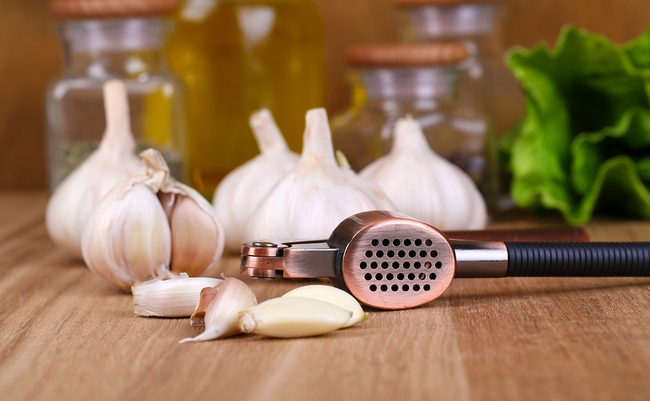
Photo credit: bigstock.com
16. Garlic
Garlic is often thought of as being something that is good for heart health, but it also has powerful compounds that fight all types of cancer, including colorectal cancer. Like onions, garlic contains a type of sulphur compound called allicin, which protects the cells in the large intestine from the toxins that can lead to the development of polyps in the colon. Garlic has even been shown in studies to stop the growth of cancer cells that have already begun to develop in the large intestine. Garlic works best when it has been slightly crushed or cut. This allows the allicin inside garlic to be released and reach its powerful best.
If you can stand the strong taste, crush one or two whole cloves of garlic, wait about five minutes, and then swallow it whole. If that is too strong, try simply chopping up a few cloves each day and add it to your salads, vegetable dishes, stir fry dishes, or whatever else you are cooking up.
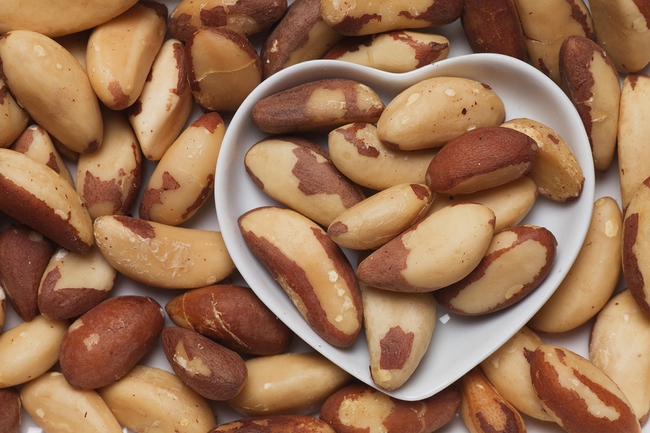
Photo credit: bigstock.com
17. Foods Rich in Selenium
Foods that are rich in selenium prevent prostate cancer and other types of cancer. Although the exact reason why is not fully understood by scientists, but it’s thought that selenium helps the body create a certain type of antioxidant enzyme which drastically lowers the amount of free radicals in the body. As you have previously read, free radicals damage our DNA on a cellular level, which can cause normal cells to mutate and become cancerous. The RDA for selenium is no more than 70 micrograms each day.
Just one Brazil nut has 95 micrograms, so you don’t need a great deal of this compound to get all the cancer protection you need. Other sources of selenium are chicken liver, tuna, and egg yolks. Selenium can be toxic in high enough amounts, so don’t overdo it. Just one or two Brazil nuts or two or three eggs for breakfast are all you need.

Photo credit: bigstock.com
18. Don’t Forget the Calcium
Calcium rich foods are a great way to avoid colorectal cancer. Milk and other types of dairy products are the best source of calcium as well as containing vitamin D. Calcium and vitamin D are closely connected. In combination, both of these are important for the healthy, normal division of cells, delaying the activation of cancer cells, and accelerating the destruction of cancer cells.
Calcium is also thought to prevent the irritation of the intestinal lining, which makes this mineral a great cancer fighter. It’s important to note that consuming more than 1,500 milligrams of calcium each day has been linked to an increased rate of prostate cancer in men. This is a very high level of calcium, however, and you would be unlikely to be able to eat this much calcium but in combination with a calcium supplement, getting too much calcium would be much easier. Speak with your doctor before you consider taking a calcium supplement.
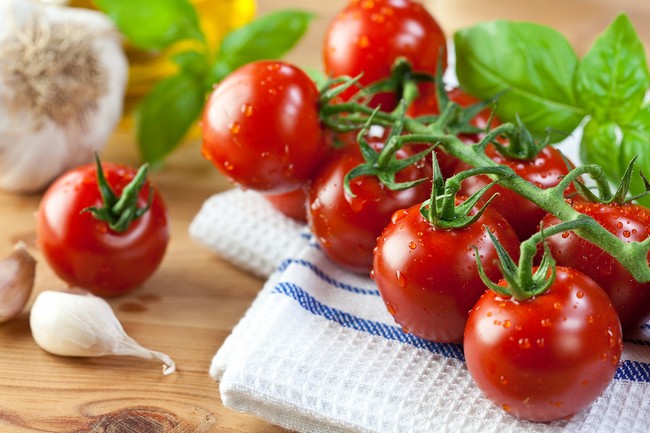
Photo credit: bigstock.com
19. Let’s Talk Lycopene
This special type of antioxidant is found in foods that are pink or red in color such as guavas, pink grapefruit, watermelon, red bell peppers, tomatoes, and blood oranges. Lycopene is most concentrated in tomatoes and can still be found even in cooked tomato products, so you can still get plenty of this anti-cancer antioxidant even if you eat tomato sauces or tomato paste.
In studies done with animals, lycopene stopped all type of cancer cells from growing including prostate cancer, endometrial cancer, breast cancer, and lung cancer. Although researchers have yet to discover how lycopene works, it is believed that lycopene is able to stop the growth of cancer cells by improving the immune system as well as interfering with the abnormal growth of cells. Numerous studies suggest that a diet rich in lycopene is linked to a reduced risk of certain types of cancer, according to studies published by the American Institute for Cancer Research.
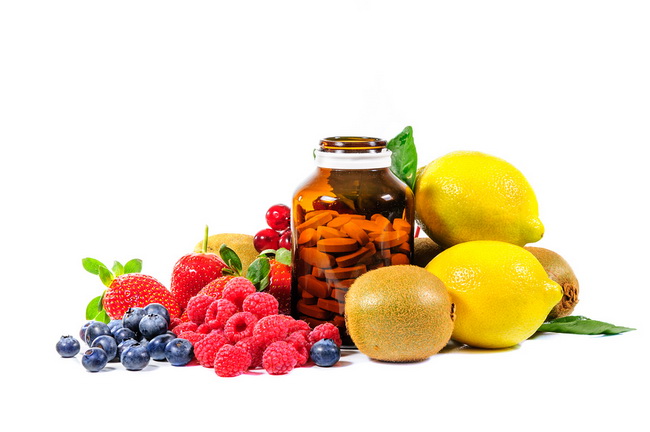
Photo credit: bigstock.com
20. Get Your Vitamin C
Vitamin C, sometimes referred to as ascorbic acid, has been linked to the prevention of numerous types of cancer as well as the death of cancer cells. This water soluble antioxidant supports our immune system and neutralizes free radicals within the watery, more liquid areas of the body’s tissues. Some of the best sources of vitamin C are citrus fruits, spinach, tomatoes, bell peppers, cabbage, mustard greens, broccoli, cauliflower, Brussels sprouts, guavas, and berries of all kinds. Men need about 90 mgs of vitamin C each day, women about 75 mgs. Some studies have shown, however, that rats who were fed 200 mgs of vitamin C each day had lower stress levels and lower risk of developing certain types of cancer. This might be because vitamin C lowers inflammation, especially the type of chronic inflammation that is one of the root causes of many chronic diseases, including cancer. Many health experts believe that the current RDA of vitamin C is far too low. Speak with your doctor about the proper dose for your unique situation.
As you can see from this list, a cancer fighting diet is not all that different from a healthy, natural, whole foods diet. But these 20 foods in particular can keep you and your family from suffering the dire consequences of cancer.
References:
































